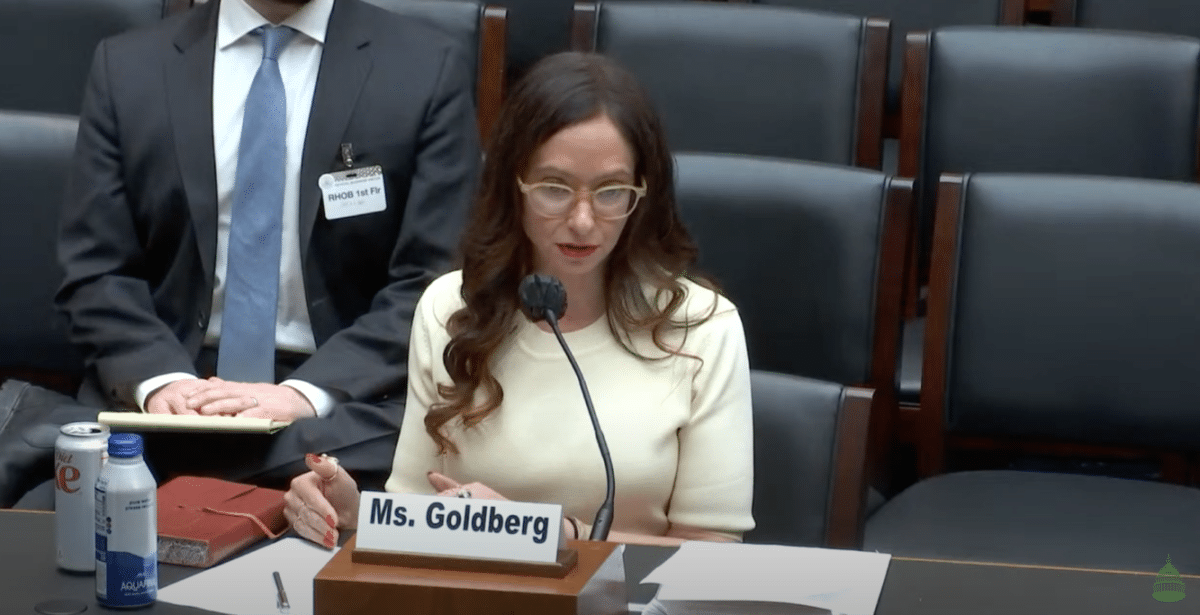On December 1, 2021, Carrie Goldberg founder of C. A. Goldberg, PLLC testified before the U.S. House of Representatives Committee on Energy and Commerce at a hearing entitled: “Holding Big Tech Accountable: Targeted Reforms to Tech’s Legal Immunity”
Carrie used the opportunity to share our experiences representing victims of catastrophic injuries caused by online platforms and the heartbreak of trying to get justice for clients locked out of our courts because of an outdated law: Section 230 of the Communications Decency Act.
Carrie founded the law firm C.A. Goldberg, PLLC to represent victims of catastrophic injuries – people who’ve had their privacy invaded, bodies raped, freedoms enslaved, and sometimes lives snuffed out entirely.
“I’ve been vindicating the rights of severely traumatized people since graduating college in 1999. I began my career as a case worker for Nazi Victims and Holocaust Survivors in New York City, providing this dwindling and important group with social services and applying for the various new reparations that materialized in the early 2000’s. (…) Money does not undo injuries or erase traumas. But court’s reallocation of money from the injurer to the injured is the best method of justice we have for improving life for victims and deterring future bad acts of offenders. I learned two very important things from the Holocaust Survivors which guide my work at the firm: 1) if somebody hurt you, somebody must pay 2) the only way to stop history from repeating itself is to bear witness and tell the story over and over again until change comes about. That’s what I’m here to do today.” – Carrie Goldberg
Carrie’s testimony started by looking at three of our cases, each in different phases of litigation, which were impacted by the culpable tech companies’ claim of immunity.
She then provided some historic context, lamented the overreach of our courts in interpreting Section 230, explained why reforming the law will not cause a stampede of litigants to the courts, looked at the four bills being discussed to reform the situation, and presented a summary and redline of what needs to happen in Section 230 reform to protect the most serious victims and deter the worst of tech’s antisocial business practices.
In summary, Carrie said, we must:
- Remove immunity for Bad Samaritan platforms that purposefully facilitate or solicit criminal conduct or are willfully blind to it;
- Create carve-outs for the most seriously heinous conduct such as child sexual exploitation, terrorism and cyber-stalking and the most serious types of injuries like wrongful death; and
- Eliminate immunity when platforms have actual knowledge of injurious conduct or ignore a court order.
Over the next few weeks at cagoldberglaw.com/blog, we’ll expand on the key points Carrie made in her testimony including:
- Section 230: how we got here.
- Examples of the court’s too broad interpretations of Section 230.
- Why removing Section 230 immunity will not flood the courts.
- The four reform proposals on the table currently.
- Carrie’s fix.
Americans are being injured by tech companies running amuck, unconstrained by regulation, liability for their product, or the threat of litigation. Everyday people lost their fundamental right to the courts to vindicate their injuries. This has created an undeserved windfall for the tech industry, allowing it to become the most powerful, wealthy, omnipotent, and omniscient industry in the history of the world. The trio of corporations, courts, and Congress birthed a monster. Through legislative reform, Congress can fix what corporations won’t because of greed and courts can’t because of bad accumulated case law. Anybody could become my next client.




